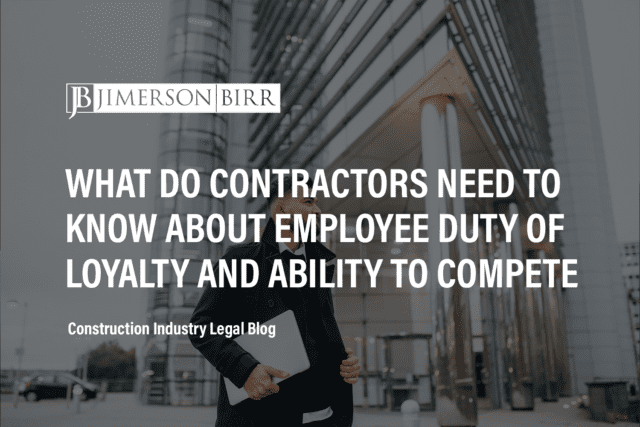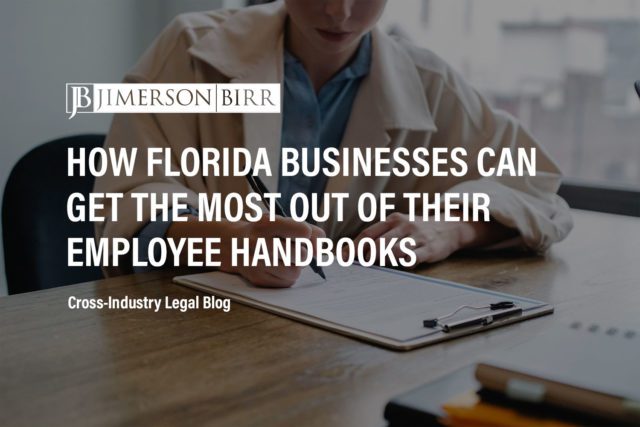How does the FMLA affect businesses?
The FMLA plays a crucial role in shaping employment practices for Florida-based businesses. FMLA compliance entails adhering to federal regulations that grant eligible employees up to 12 weeks of unpaid leave for qualifying medical and family reasons while ensuring job protection upon return. Non-compliance can result in costly litigation, tarnished reputation, and regulatory penalties for businesses.
Consequently, proper training on FMLA requirements is essential for businesses to navigate complex leave entitlements, eligibility criteria, and documentation procedures effectively. Training empowers managers and HR personnel to handle leave requests, ensure compliance with FMLA provisions, and mitigate the risk of litigation arising from mishandled leave situations.
Without proper training and compliance protocols, Florida businesses may find themselves embroiled in FMLA litigation.
Do you need help with FMLA compliance, training, or litigation? Schedule your consultation today with a top employment law attorney.
Which laws and regulations relate to FMLA compliance, training, and litigation in Florida?
In Florida, several laws and regulations intersect with the FMLA, including:
- Uniformed Services Employment and Reemployment Rights Act (USERRA): This act provides employment protections for employees returning from military service, complementing FMLA protections.
- Florida Civil Rights Act (FCRA): This act prohibits discrimination in employment based on protected characteristics, including pregnancy and family responsibilities, aligning with FMLA provisions.
- Florida Whistleblower Act: Florida extends whistleblower protections to public and private employees if they experience retaliation for reporting employer violations of laws, including FMLA rights.
What are common issues regarding FMLA compliance and training that lead to litigation?
The following issues are among the most common in actions regarding FMLA compliance, training, and litigation in employment law matters:
- Inadequate Documentation: Businesses may face litigation due to insufficient documentation of FMLA leave requests, approvals, or denials, leading to disputes over leave entitlements and employee eligibility.
- Miscommunication of Policies: Failure to effectively communicate FMLA rights and obligations to employees can result in misunderstandings, disputes, and potential litigation over leave entitlements or return-to-work expectations.
- Improper Leave Designation: Incorrectly designating leave as FMLA-protected or failing to designate leave altogether can lead to litigation, particularly if employees face adverse employment actions due to FMLA-qualifying absences.
- Retaliation: Businesses may face litigation for retaliating against employees who exercise FMLA rights, such as demotion, termination, or adverse treatment following FMLA-protected leave.
- Interference with FMLA Rights: Actions that interfere with employees’ FMLA rights, such as discouraging or dissuading employees from taking FMLA leave, can result in litigation alleging FMLA violations.
We are value-based attorneys at Jimerson Birr, which means we look at each action with our clients from the point of view of costs and benefits while reducing liability. Then, based on our client’s objectives, we chart a path forward to seek appropriate remedies.
To determine whether your unique situation may necessitate litigation, please contact our office to set up your initial consultation.
What steps should an employer take to minimize the risk of litigation over FMLA compliance and training?
- Comprehensive Training: Provide thorough training to managers and HR personnel on FMLA regulations, including leave eligibility, documentation requirements, and employee rights, to ensure consistent application and compliance.
- Clear Policies and Procedures: Develop and communicate clear FMLA policies and procedures outlining leave entitlements, application processes, and return-to-work expectations to employees, promoting transparency and minimizing misunderstandings.
- Accurate Documentation: Maintain accurate and complete records of FMLA leave requests, approvals, denials, and communications to demonstrate compliance with FMLA requirements and facilitate efficient leave management.
- Regular Audits and Reviews: Conduct regular audits of FMLA practices, policies, and documentation to identify and address potential compliance issues proactively, minimizing the risk of litigation.
- Non-Retaliation Policies: Implement and enforce non-retaliation policies that prohibit adverse actions against employees for exercising FMLA rights, foster a supportive workplace culture, and reduce the likelihood of retaliation claims.
- Consistent Application: Ensure consistent application of FMLA policies and procedures across all employees and departments to mitigate the risk of discrimination claims or allegations of unfair treatment.
Frequently Asked Questions
Can an employee take intermittent FMLA leave for doctor appointments?
Yes, employees may take intermittent FMLA leave for medical appointments as long as it is medically necessary and properly documented.
Is paid leave required under FMLA?
FMLA leave is generally unpaid; however, employees may use accrued paid leave, such as sick or vacation time, to supplement FMLA leave.
Are all employers required to comply with FMLA regulations?
No, FMLA regulations apply only to covered employers, typically those with 50 or more employees.
Have more questions about FMLA compliance, training, or litigation-related situations?
Crucially, this overview of FMLA compliance, training, and litigation does not begin to cover all the laws implicated by this issue or the factors that may compel the application of such laws. Every case is unique, and the laws can produce different outcomes depending on the individual circumstances.
Jimerson Birr attorneys guide our clients to help make informed decisions while ensuring their rights are respected and protected. Our lawyers are highly trained and experienced in the nuances of the law, so they can accurately interpret statutes and case law and holistically prepare individuals or companies for their legal endeavors. Through this intense personal investment and advocacy, our lawyers will help resolve the issue’s complicated legal problems efficiently and effectively.
Having a Jimerson Birr attorney on your side means securing a team of seasoned, multi-dimensional, cross-functional legal professionals. Whether it is a transaction, an operational issue, a regulatory challenge, or a contested legal predicament that may require court intervention, we remain a tireless advocate every step of the way. Being a value-added law firm means putting the client at the forefront of everything we do. We use our experience to help our clients navigate even the most complex problems and come out the other side triumphant.
If you want to understand your case, the merits of your claim or defense, potential monetary awards, or the amount of exposure you face, you should speak with a qualified Jimerson Birr lawyer. Our experienced team of attorneys is here to help. Call Jimerson Birr at (904) 389-0050 or use the contact form to set up a consultation.
Here are some blogs written by JB attorneys that provide more information about employment law:
- Independent Contractor or Employee: Know the Difference (jimersonfirm.com)
- Rescinding Job Offers in At-Will Employments in Florida | Jimerson Birr (jimersonfirm.com)
- Tips for Drafting Employee Handbooks in Florida | Jimerson Birr (jimersonfirm.com)
- Understanding The EEOC Process: Employee Sexual Harassment And Sexual Discrimination Claims In The Era Of #MeToo (jimersonfirm.com)
- Contesting OSHA Violations and OSHA Citations: A Guide To OSHA Employer Rights (jimersonfirm.com)
- What Do Contractors Need to Know About Employee Duty of Loyalty and Ability to Compete | Jimerson Birr (jimersonfirm.com)

We live by our 7 Superior Service Commitments
- Conferring Client-Defined Value
- Efficient and Cost-Effective
- Accessibility
- Delivering an Experience While Delivering Results
- Meaningful and Enduring Partnership
- Exceptional Communication Based Upon Listening
- Accountability to Goals











